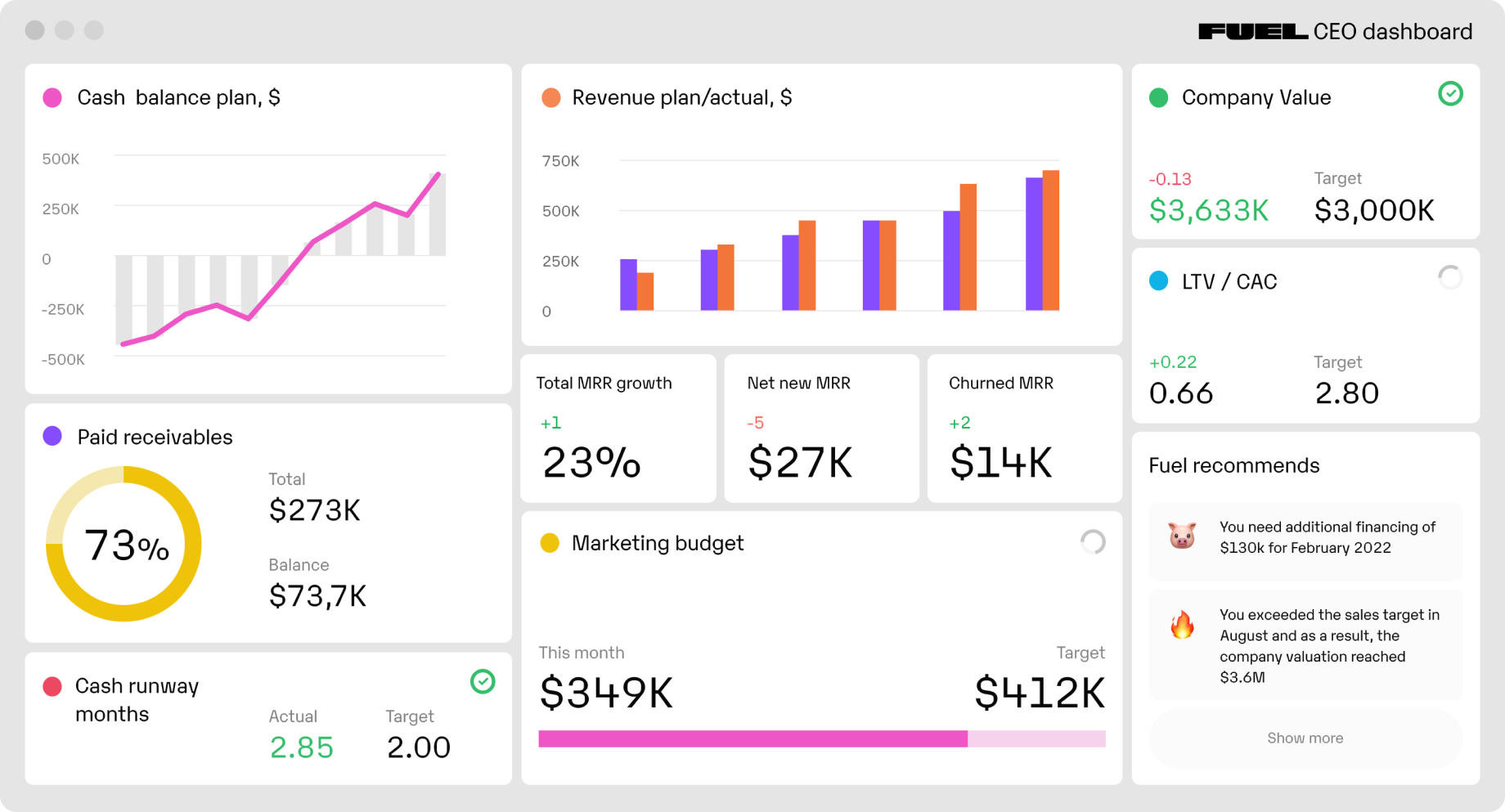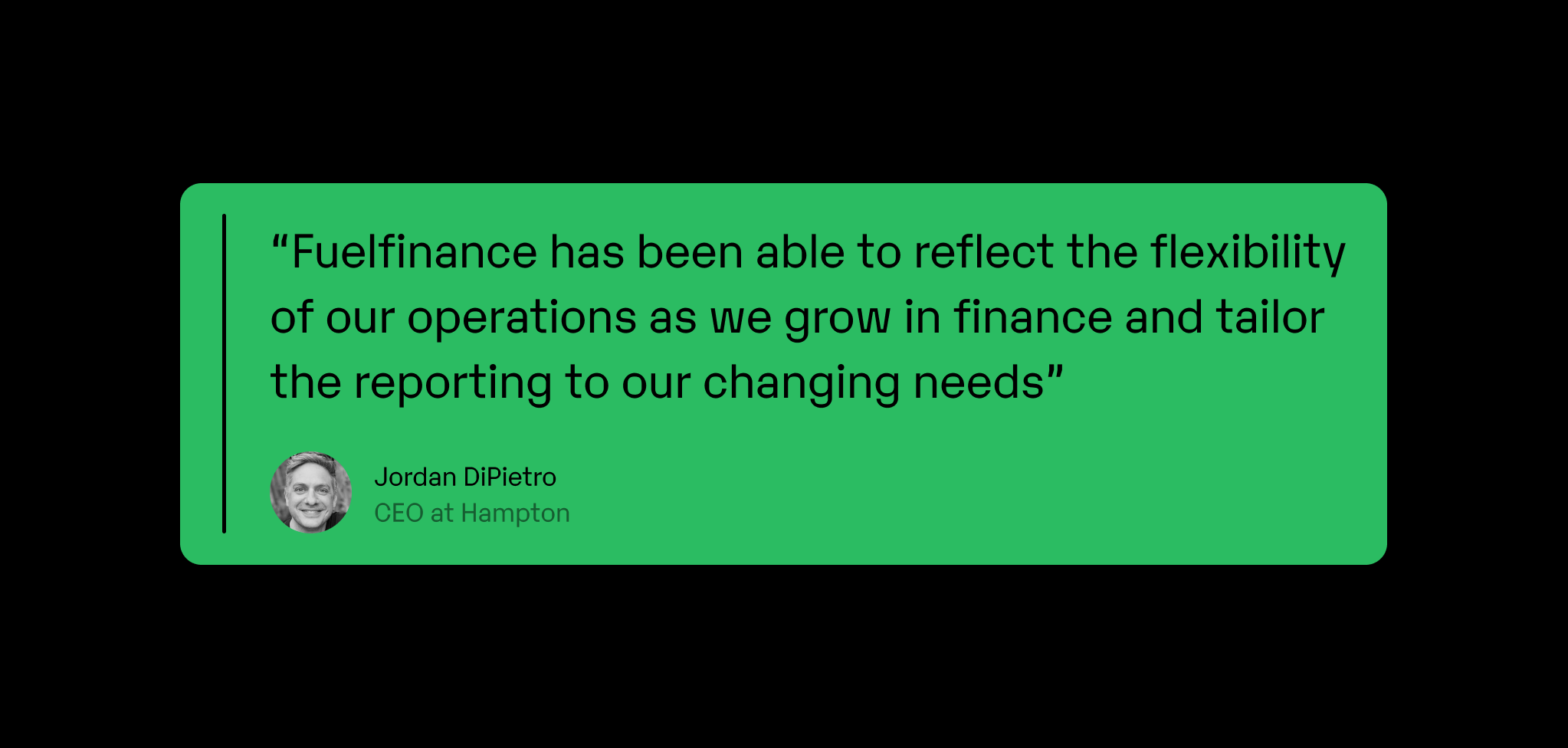


With inflation being the number one concern for small businesses in the U.S. in 2023, it's no wonder financial management is of extreme importance to small business owners and startup founders.
The good news is that managing finance in a startup doesn't require having a degree in Finance or five years of experience working in the financial sector.
However, it does require discipline, consistency and attention to detail when tracking your business expenses and cash flow.
But still – it doesn't have to be complicated.
After reading this guide, you'll have a solid background in small business financial management that will empower you to make better decisions and prepare you for financial success.
Small business financial management is a set of practices for effectively handling financial resources to ensure profitability and sustainable growth of your business.
It's also essential for startups because it helps them make better long-term decisions, attract investors and obtain scalability.
Managing business finances revolves around analyzing and optimizing your finances and monitoring your revenue and expenses.
Here are the core elements of any startup or small business’s financial management:
Today, it's possible to automate a big portion of these tasks using some of the financial management software available on the market.
Small businesses and startups face various challenges you can resolve or avoid by having good financial management in place.
Here are a couple of ways it can benefit your business:
Therefore, financial management is an essential tool for managing business finances and ensuring financial health and growth, no matter the size of your company.

If you look at financial management as a pyramid of success, you'll see that there are five key stages. Starting from the base of this pyramid, we have transacting, then record keeping, financial reporting, financial planning and analysis and finally, strategic finance.
What many small business owners want is to reach the top of this pyramidical structure. However, to do that, they have to spend much more time at the very bottom.
Therefore, to reach the state "from rags to riches" as quickly and effectively as possible and stay on top, we've provided you with a list of tips to avoid common mistakes at each step of the way.
As your business grows, it’ll naturally involve more payment methods. While this might be convenient for your customers who get to choose their preferred payment method, it might put you into a trap, especially if you work internationally and deal with different currencies.
To avoid situations with extreme transactional and currency exchange fees, we’d recommend following these guidelines:
The second stage in financial management is reserved for record-keeping, which is an essential step because it gives a clear picture of your business's financial health.
By keeping records, you document everything systematically, with the help of software or ledgers. It is the step you must take from the very beginning of your financial journey. The key metric of your startup's value is accurate record keeping.
Automation also plays an important role here, as it connects bank accounts and credit cards, sets up a reminder on transactions and allows for integration with other apps.
Here are main things to focus on as a small business owner:
If you're new to record keeping, check out this article to understand the difference between a bookkeeper and an accountant and see what your startup needs.
Congratulations – you're halfway through! How well your startup is handling money is represented in these three financial statements:
The good news is that you no longer have to track cash flow and expenses manually – you can automate most of the work regarding financial statements. Pay attention to the following:
Not everyone wants to know what their future holds. However, your startup company shouldn't be one of them. With FP&A, you'll be able to decide on everything money-wise and analyze your financial data to uncover patterns and assess performance.
See also: FP&A vs accounting
Automation can help a lot with grunt work, leaving you with decision-making. The more advanced your business becomes, the more polished your FP&A becomes.
Since you're so close to business checkmate, pay attention to:
If you're just starting with seed funding, read this article on startup financing and venture capital to figure out whether you need an investor, or you can explore other small business funding options, such as a business credit card or small business loan.
Follow the links for reviews of the best financial planning tools and financial analysis software.
Congratulations – your startup has reached the summit! This entails the following:
Don't be so bold yet and try to apply the following:
See also: How to calculate runway

If you want the best possible solution for your finances, we introduce you to Fuel – our cloud-based FP&A solution for startups.
The purpose of our software is to save you time by eliminating as much manual work as possible, securely storing all your data in one place and helping you make accurate financial projections by simplifying financial forecasting for startups.
Our solution is very flexible, allowing you to fully customize financial modeling for your startup according to your goals and vision.
At Fuel, we act as your outsourced CFO and handle everything, from spreadsheets to automation, and we do that within the familiar Google Spreadsheets environment.
And when we say everything, we mean it. Our software covers:
Our goal is to combine the benefits of automation and human financial experts to free up your time so you can focus on the right decisions for your startup or small business. We bring your financial data into order and store it securely in the cloud.
Finally, we help you save money because there's no need to hire a full-time CFO to manage your finances if you can't afford it at this stage of your business – we will act as your fractional CFO.
You'll get help from a dedicated startup accountant and financial manager who will support you every step along the way and solve your doubts.
Petcube, the world-famous company producing smart devices for your pet companions, with the help of Fuel, found a solution that was five times better and ten times cheaper than what they were managing their business finances previously. They significantly boosted their profitability and gained a sense of security regarding their business's future.

O0 Design is a full-stack design studio with a strong emphasis on collaborating with product teams to instigate positive transformations. Fuel showed them that running a business financing can be effortless. Today, they base all their decisions on solid, data-driven insights, leading to 2x YoY growth.

Hampton is an exclusive, invite-only membership community for CEOs, with the average company revenue per member standing at an impressive $23 million. Fuel demonstrated an ability to adapt to the evolving nature of Hampton's financial operations as they expand. They've also customized their reporting to meet their changing requirements and become more agile.

Outdated practices and tools make managing small business finances seem more complicated than it actually is.
Yes, as a startup owner, you must be familiar with your business' finances to ensure sustainable growth and accurate cash flow projections. But you don't need to be a financial expert to do so.
Our team of professionals is here to guide and support you all along the way.
With Fuel, you can automate the biggest portion of finance-related small business administration and save time for more important tasks, such as growing and scaling your own business.
Book a free 30-minute demo to see firsthand how our tool works and what it can do for you.
The five basics of financial management are transacting, record keeping, financial reporting, planning and analysis and strategic finance. Check out this list of the most common outsourced financial services.
You can plan small business finance by analyzing your current state, setting clear goals, creating a budget and regularly monitoring your financial statements. You should also plan to set aside some amount of money for emergencies in case of unforeseen circumstances.


Just imagine how that would transform your team’s productivity and focus? Talk to our financial experts to know more.